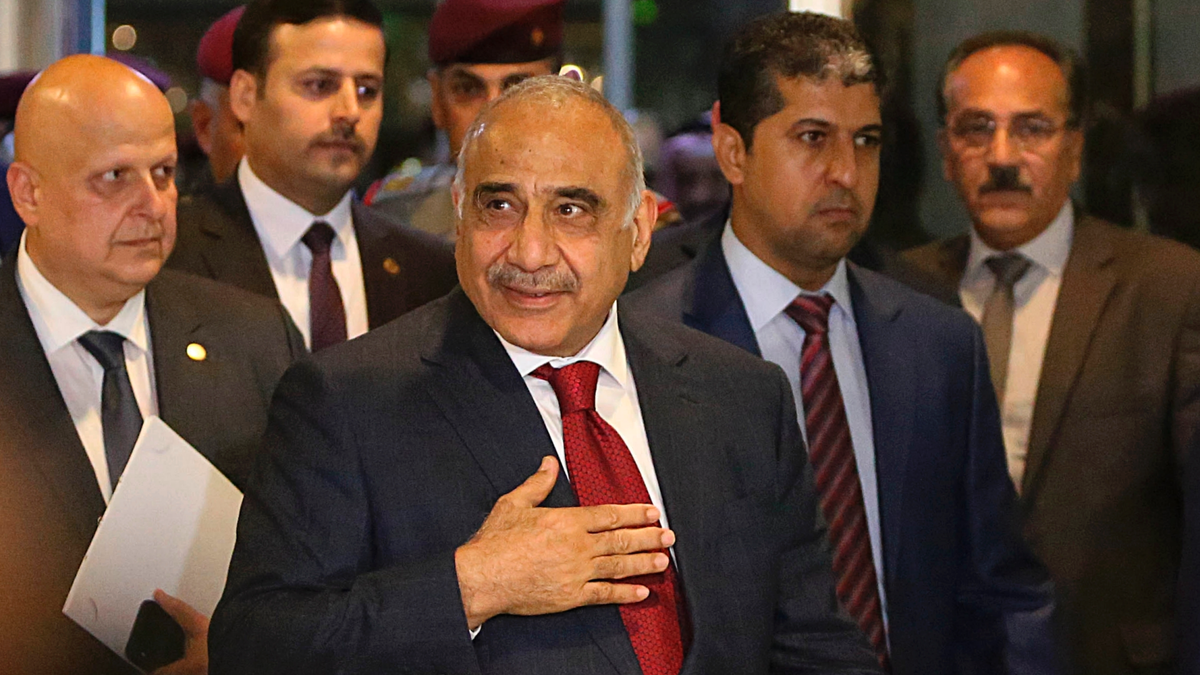
Prime Minister-designate Adel Abdul-Mahdi, center, arrives to the parliament building, in the heavily guarded Green Zone, in Baghdad, Iraq, Wednesday, Oct. 24, 2018. Iraq's parliament is convening to vote on Prime Minister-designate Adel Abdul-Mahdi's ministry appointments, and the parliament must confirm the appointments for the government to be sworn in. (AP Photo/Hadi Mizban)
BAGHDAD – Iraq's new prime minister began moving his offices out of Baghdad's highly secure Green Zone on the first day of his term Thursday, saying he wanted to bring his government closer to the people.
Adel Abdul-Mahdi held his first news conference in a rehabilitated government compound opposite Baghdad's iconic central railway station, near the city center.
He said he wanted to provide security, water and electricity for all Iraqis during his term.
"We want to consider all of Iraq a Green Zone," said Abdul-Mahdi.
The U.S. established the Green Zone in 2003 to secure its embassy and Iraqi government institutions. But the zone has become a symbol of the country's aggressive inequality and fueled the perception among Iraqis that their government is out of touch.
The new location, approximately 2 miles (3.2 kilometers) from the Green Zone, used to contain the offices of Parliament under the late dictator Saddam Hussein. Access is tightly controlled by security forces, who guard the main gate with armored vehicles
Abdul-Mahdi begins his tenure facing a raft of challenges including high unemployment, widespread corruption, dilapidated public services and poor security.
Frustration over chronic power cuts and water pollution sparked riots in Iraq's southern provinces in the summer.
A former oil and finance minister and an ex-vice president, the 76-year-old Abdul-Mahdi is seen as a political independent and is Iraq's first prime minister from outside the Dawa party in 12 years. But he begins his term with a hobbled government after lawmakers in an unruly session of Parliament on Wednesday night refused to vote on eight of his Cabinet nominees.
Abdul-Mahdi was left without ministers for key ministries including Defense, Justice and the Interior.
One of his first challenges will be to develop a coherent Iraqi position on tight U.S. sanctions on neighboring Iran, which will go into effect Nov. 2. The sanctions prohibit any businesses from doing commerce with both the U.S. and Iran.
Abdul-Mahdi's predecessor, Haidar al-Abadi, sought a waiver from the U.S. government to exempt Iraqi companies from the rules.
Abdul-Mahdi said he would balance Iraq's own interests and independence against the tugs of the economic war between Washington and Tehran.
"Iraq is not part of the sanctions system," he said. "We want to secure Iraq from any interference in (its) issues and affairs."







































